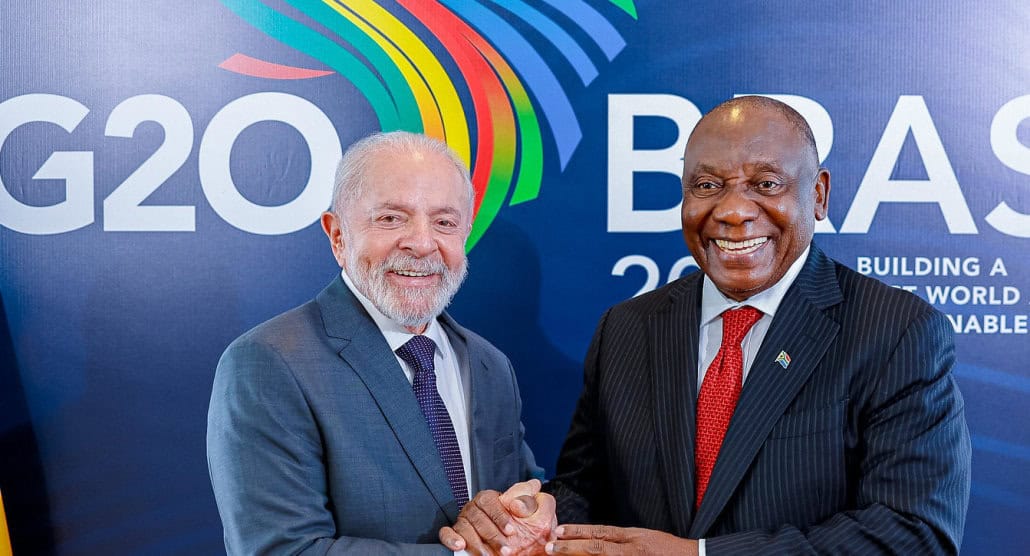Image: Flickr/g20brasil24
The G20 leaders’ declaration released at the close of the Rio summit makes all the right noises regarding various issues ranging from global conflict and inequality to food security and climate change.
However, its take on action against corruption is poor, to say the least. Out of 85 paragraphs in a 22-page document, only one deals with, and indeed even mentions corruption – and in unacceptably vague terms. This is not good enough, considering the catastrophic extent of the problem worldwide. Furthermore, in terms of decisions taken and commitments made, crime and corruption comes in at 19th position on a list of 22 topics – only two commitments were made in this regard, equating to 1% of all commitments made.
Transparency International (TI) has responded to this rather weak approach with a statement urging G20 leaders to take a bolder, more co-ordinated stance and ensure that resources are spent for public benefit rather than disappearing into private bank accounts.
South Africa assumed the presidency of the G20 on 19 November, and TI would like President Cyril Ramaphosa to seize this chance to prioritise anti-corruption, take a meaningful stand against illicit financial flows, and “break the chain” of complacency shown in previous G20 presidential terms.
Read the full text of the statement below.
19 November 2024, Rio de Janeiro – In the Rio Summit declaration released on Monday night, G20 leaders appear to have found common ground on multiple critical problems, from progressive taxation to measures to alleviate poverty and promote peace. However, Transparency International warns that, without addressing corruption and dirty money, agreements made at summits like these will remain only aspirational. This is all the more likely given the growing influence of powerful interest groups and the continued erosion of democratic norms, which pose additional barriers to effective multilateral action.
Leaders devoted a single, cursory paragraph to anti-corruption in their declaration, using weaker-than-ever language on actual actions. According to Transparency International, the G20 Summit ends without the international community knowing how the world’s largest economies will ensure that newly mobilised resources, including those from the new global alliance on hunger and poverty, are allocated and spent for the benefit of the most vulnerable across the world.
Billions and potentially trillions of dollars are at stake as the G20 commits to mobilise new resources to alleviate poverty and protect the climate. Transparency International’s research has shown how low- and middle-income countries have suffered from illicit financial flows due to persistent secrecy and other significant loopholes in the G20 countries’ financial systems. The organisation found that four G20 countries were among the top five destinations for investing dirty money from Africa in real estate.
Transparency International is concerned that without robust transparency and accountability checks, G20’s new initiatives could further exacerbate inequalities, rather than reduce them.
As democracy declines around the world and powerful interest groups undermine multilateral action, Transparency International questions the G20’s ability to effectively coordinate anti-corruption measures and solutions to other global problems.
At this year’s G20 Summit, Transparency International protested the G20’s inaction on corruption with a guerilla marketing stunt. Six paragliders, with canopies designed to resemble oversized US$100 bills, filled Rio’s skies and landed on a banner which read: “How obvious should corruption be before it’s a G20 priority?”
With South Africa set to assume the G20 presidency later today, Transparency International calls on President Cyril Ramaphosa to chart a different course. To implement agreed commitments, addressing corruption and illicit financial flows must be a central pillar of next year’s G20 agenda. Without bold action, the G20 risks undermining their mission and leaving critical goals unachievable.
Maíra Martini, Head of Policy & Advocacy at Transparency International, said:
“G20 leaders advanced on important topics, including the need for progressive taxation, measures to alleviate poverty and efforts to promote peace. However, once again, the G20 underestimated the importance of anti-corruption measures to achieve these goals and ensure the sustainability of measures to promote equality, fairness and peace. If they succeed on some of their new pledges, there will be more funds available – but without any concrete, agreed-upon checks. A continued lack of robust anti-corruption commitments sends an alarming message: the G20, despite its power, is unwilling to confront the root issues that undermine its own agenda.
“South Africa’s Presidency must break this cycle and make anti-corruption a priority. The G20 has the power to spearhead actions on illicit financial flows, and anything less is lip-service to sustainable development. Without urgent and meaningful action, corruption will continue to erode trust, stall development and exacerbate inequality worldwide.”

